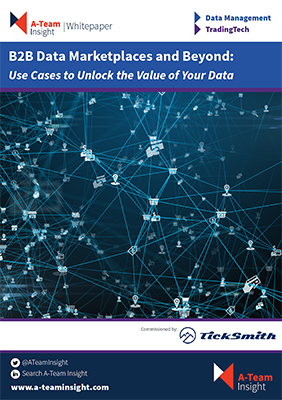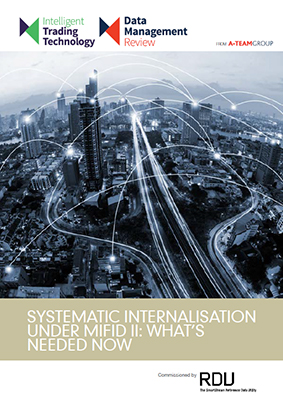TradingTech Insight Trade Execution Technology The latest content from across the platform
Interoperability and AI in Trading Workflows
Emerging capabilities in AI and interoperability are transforming trading workflows, with the promise of heightened levels of collaboration and personalisation resulting in greater efficiency and performance. The potential of these new technologies is encouraging financial firms to modernise their trader desktops and streamline operational processes. With AI and generative AI (GenAI) in particular still nascent…
Trading in the Public Cloud: Attitudes to Cloud Adoption in Capital Markets
Capital markets have been slow to embrace cloud technologies and in particular the public cloud. Practitioners have been wary of issues around speed/performance, privacy and cost, all of which can dampen the appeal of cloud technologies for trading firms. But broad acceptance of cloud beyond finance is highlighting some compelling benefits, primarily in terms of…
Getting Control of Access to Key Market Services
Use of single dealer portals that allow banks to trade assets on behalf of their clients is growing rapidly, particularly among firms in the fixed income and foreign exchange markets in particular. But while trading portals offer great benefits in terms of broader market reach and enhanced client functionality, they bring risks too. Firms are…
Benefiting from Advanced Execution in US Treasury Markets
The expanded footprint of electronic non-bank liquidity providers (NLPs) and established broker/dealers, as well as the proliferation of electronic aggregation platforms, are all adding complexity to fixed-income markets, which as a result are starting to resemble established electronic markets like equities and foreign exchange. For market participants, this has added to the challenge of sourcing…
B2B Data Marketplaces and Beyond
Financial institutions and corporations often generate huge quantities of data as a by product of their core activities. This data – details of historical transactions, customer interactions and metadata for referring to instruments, counterparties or entities – can provide valuable insights for industry participants, and form the basis of a meaningful data sales business. But…
Exchanges Are Becoming Data Marketplaces
Exchanges and other trading venues have long derived revenue from sales of their data; in some cases they operate substantial businesses based around sales of their real-time quotes and other market data services. But few are well set up to deal with growing demand for other datasets they may generate from their core activities, such…
Financial Markets Operations Response to COVID-19: Best Practices for Working from Home
The COVID-19 pandemic is disrupting all walks of life, and carries with it implications for society beyond even the obvious and immediate health impact. Business is being hit across the board, with many corporations sending staff home in an effort to keep them both safe and working. It’s clear that firms can’t rely on a…
Delivering Algo Performance through Enhanced Market Simulation
The global shift toward unbundling of research services from execution is forcing sell-side institutions to focus on differentiating their service offerings as they vie for buy-side liquidity in an increasingly competitive marketplace. With soft-commissioned research and high-speed connectivity to trading venues no longer potent as differentiators, the sell side is acknowledging that the quality and…
MiFID II: Navigating the Emerging Liquidity Landscape
The September 1 deadline for full implementation of the Systematic Internalisation (SI) regime marked the beginning of a whole new liquidity landscape, with firms on both sides of the equation grappling to understand the long-term implications of the new system on Europe’s financial markets. Navigating these waters in the coming months will be challenging for…
Systematic Internalisation Under MiFID II: What’s Needed Now
From September 1, 2018, firms within the scope of MiFID II that breach volume thresholds set by ESMA on August 1, 2018 for internal matching of client orders will be required to register as systematic internalisers (SIs) and operate within the SI regime detailed in the regulation. Sounds pretty straightforward, but that is far from…











